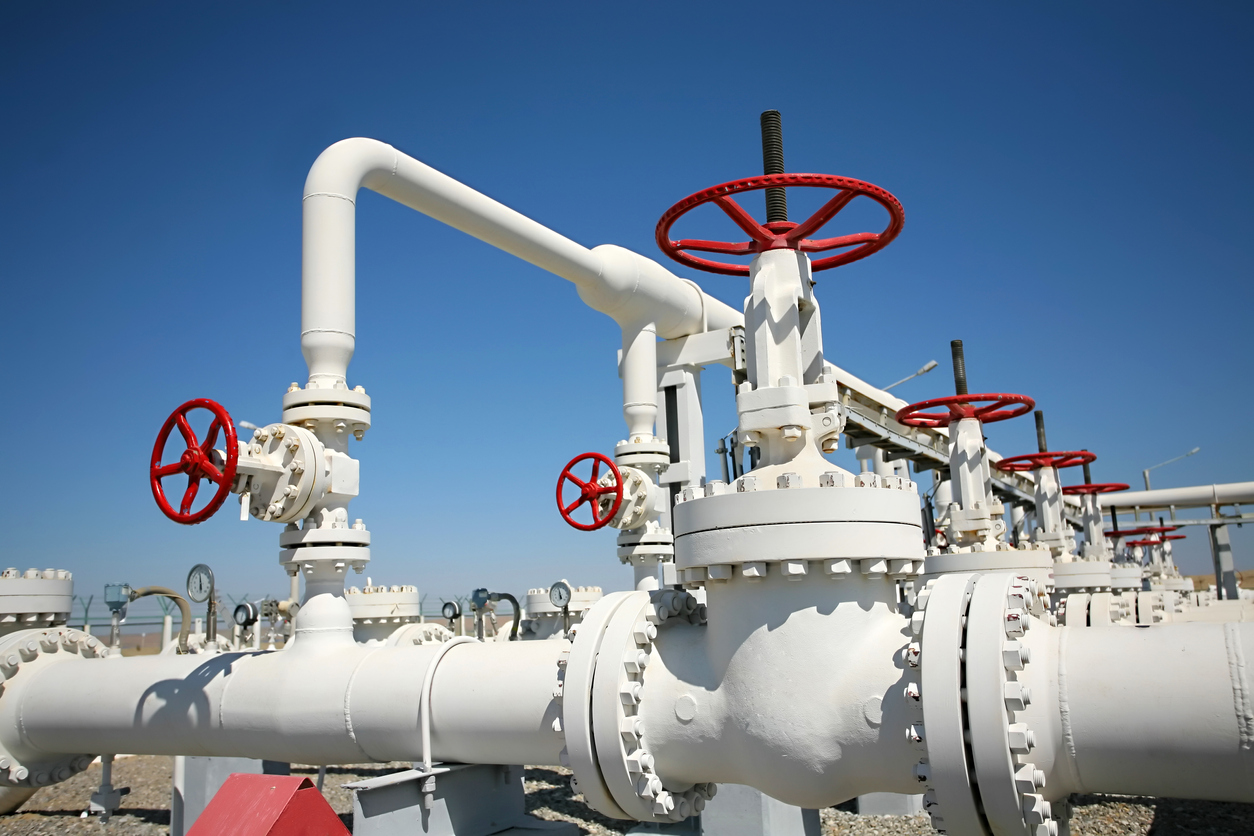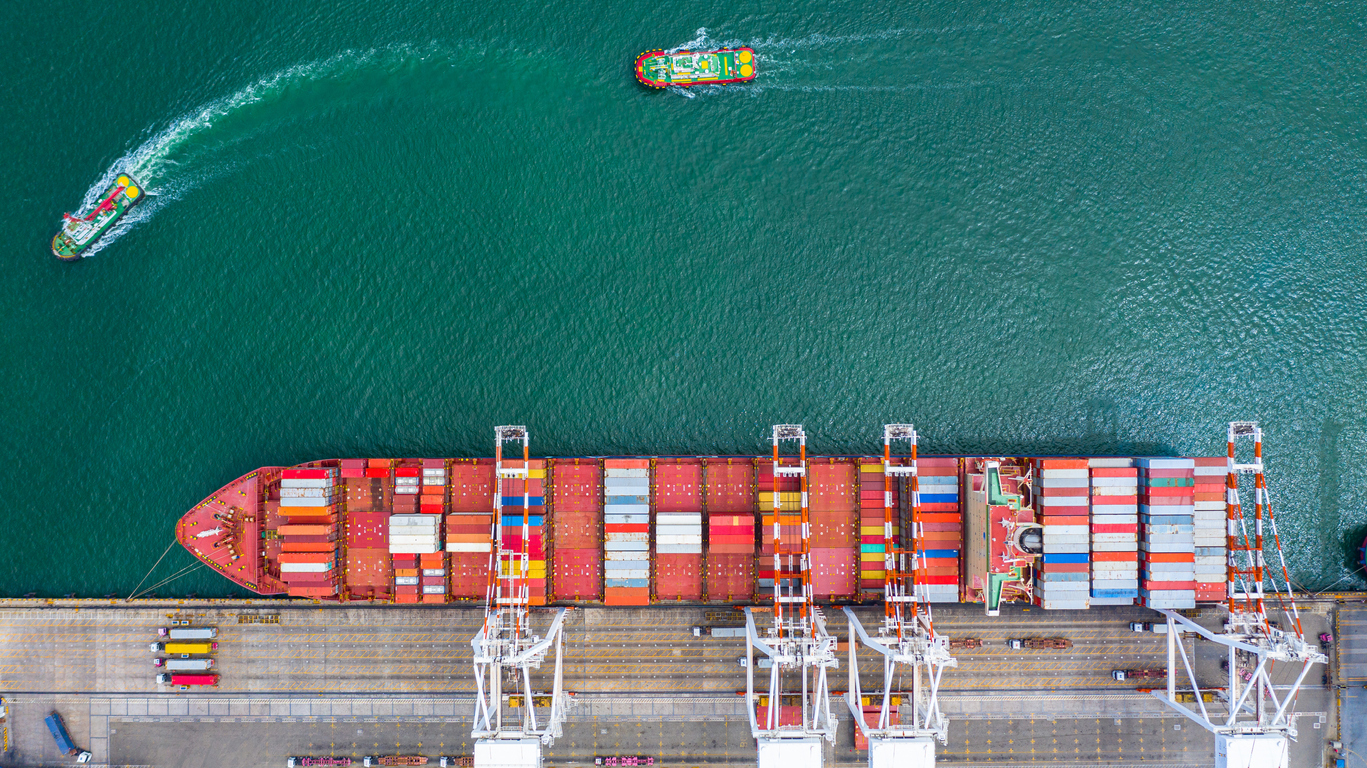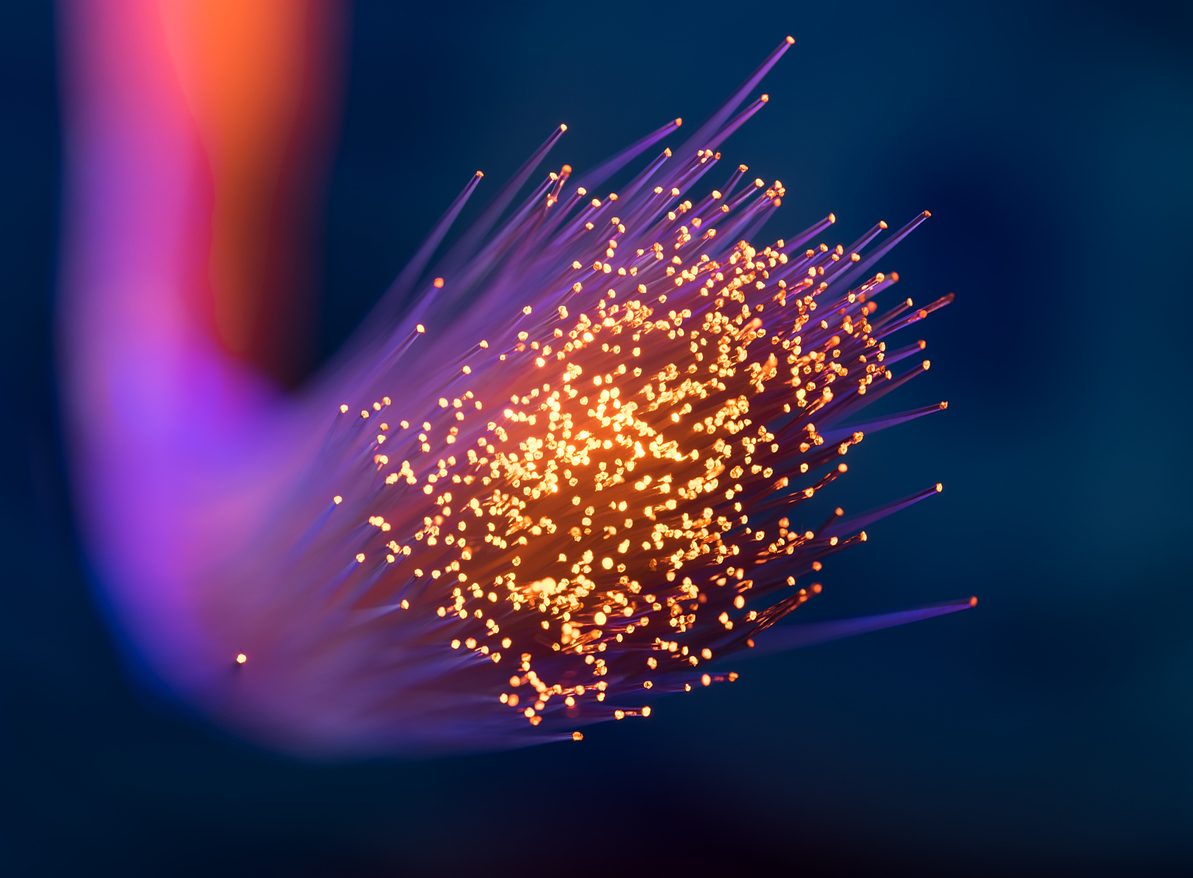Ensuring Pipeline Integrity in Nigeria: An Overview of Flushing, Pigging, In-line Inspection & Nitrogen Purging Techniques
Ensuring Pipeline Integrity in Nigeria: An Overview of Flushing, Pigging, In-line Inspection & Nitrogen Purging Techniques
Welcome to our latest blog post, where we dive into the fascinating world of pipeline integrity in Nigeria. Today, we’ll be exploring some essential techniques that keep pipelines running smoothly and efficiently: flushing, pigging, in-line inspection, and nitrogen purging. These methods may sound technical at first glance, but fear not! We promise to break them down into easily digestible bits so you can understand how they contribute to ensuring safe and reliable operations. So grab a cup of coffee, sit back, and let’s embark on this enlightening journey together!
Introduction to Pipeline Integrity in Nigeria
Introduction to Pipeline Integrity in Nigeria
Nigeria, as the largest oil producer in Africa and one of the top oil exporters in the world, heavily relies on its pipeline network for transportation of crude oil and refined petroleum products. With over 5,000 kilometers of pipelines crisscrossing the country, ensuring their integrity is crucial for the smooth functioning of Nigeria’s economy.
Pipeline integrity refers to maintaining and preserving the safety and reliability of a pipeline system throughout its lifecycle. It involves various measures such as regular inspections, maintenance activities, and emergency response plans to prevent leaks or failures that may cause harm to people or the environment.
In Nigeria, pipeline integrity has become a major concern due to frequent incidents of vandalism and theft. These criminal activities not only result in financial losses but also pose serious threats to human lives and the environment. In recent years, there have been several high-profile cases of pipeline explosions leading to loss of life and property.
To address these challenges, various techniques are employed in Nigeria for maintaining pipeline integrity. These techniques include flushing, pigging, in-line inspection (ILI), and nitrogen purging.
Flushing involves forcing water or another suitable fluid through a section of a pipeline at high velocity to remove any debris or buildup that may impede flow or cause corrosion. This technique is commonly used during initial commissioning or after repairs/maintenance activities.
Pigging is another important method used for cleaning pipelines. A “pig” is an instrument made up of different materials such as foam or rubber that moves inside the pipe by using pressure from either liquid or gas behind it. Pigs can scrape off rust deposits, scale build-up, wax deposits left by crude oil distillation processes from internal walls of pipes while moving along with them.
In-line inspection (ILI) is a more advanced technique that involves sending tools equipped with sensors through pipelines to detect any signs of damage or defects such as cracks, dents or corrosion. This method provides more detailed information about the condition of the pipeline and helps in identifying potential risks or areas that need maintenance.
Nitrogen purging is a process of removing air from pipelines and replacing it with nitrogen gas, which is an inert gas that prevents corrosion and reduces the risk of explosions. Nitrogen purging is often used during repairs, maintenance or decommissioning of pipelines.
Ensuring pipeline integrity in Nigeria is essential for maintaining safe and reliable operations of the country’s pipeline network. The various techniques mentioned above play a crucial role in detecting and preventing potential failures or damages to pipelines, ultimately safeguarding people, property, and the environment.
Understanding Flushing, Pigging, In-line Inspection, and Nitrogen Purging Techniques
Understanding Flushing, Pigging, In-line Inspection, and Nitrogen Purging Techniques
Flushing, pigging, in-line inspection and nitrogen purging are all important techniques used for maintaining pipeline integrity. These processes play a crucial role in ensuring that pipelines are operating efficiently and safely. Let’s take a closer look at each of these techniques and their importance in the context of Nigeria’s pipeline infrastructure.
Flushing is the process of removing any debris or contaminants from the inside of a pipeline before it is put into service. This technique is essential to avoid clogging or corrosion caused by foreign particles that may be present in the newly installed pipeline. The flushing process involves introducing a large volume of water or other suitable fluid into the pipeline and flushing it out repeatedly until all contaminants are removed.
Pigging refers to the practice of using mechanical devices known as “pigs” to clean, inspect or maintain pipelines without interrupting their operation. These pigs can be propelled through the pipeline by using different methods such as air pressure, hydraulic pressure or gravity. Pigs are excellent tools for removing built-up deposits such as rust, scale or wax that can hinder flow or cause corrosion over time.
In-line inspection (ILI) is another vital technique used to assess the condition of pipelines without disrupting their operation. ILI tools, also known as intelligent pigs due to their advanced technology capabilities, use sensors and cameras to gather data on internal wall thickness measurements, cracks, dents and other anomalies within the pipe’s interior surface. This information allows operators to identify areas that require maintenance before they develop into more significant problems.
Nitrogen purging involves filling a section of a pipeline with high-pressure nitrogen gas to displace any oxygen present within it effectively. Oxygen can cause corrosion inside pipelines when combined with water/moisture present in hydrocarbons transported through them. By displacing oxygen with nitrogen gas during purging operations, this risk is significantly reduced, and the lifespan of the pipeline can be extended.
Understanding and implementing these techniques is crucial for ensuring pipeline integrity in Nigeria. Regular flushing and pigging are necessary to prevent debris buildup and keep pipelines free from corrosion. In-line inspections provide operators with essential data for proactive maintenance, while nitrogen purging helps to minimize the risk of corrosion. These techniques, when used correctly, can help extend the lifespan of pipelines and ensure safe and efficient transportation of oil and gas across Nigeria’s vast network of pipelines.
Benefits of Ensuring Pipeline Integrity
Ensuring pipeline integrity is crucial for any oil and gas company operating in Nigeria. A strong and reliable pipeline network is essential for the smooth and efficient transportation of crude oil, natural gas, and other petroleum products across the country. However, pipelines are vulnerable to various factors such as corrosion, internal buildup, and external damages due to environmental factors or third-party interference. These issues can lead to leaks, ruptures, and ultimately disrupt the flow of energy resources.
To prevent such incidents from occurring, regular maintenance and inspection of pipelines are necessary. This process involves various techniques such as flushing, pigging, in-line inspection (ILI), and nitrogen purging. The benefits of ensuring pipeline integrity through these methods are numerous and can be categorized into three main areas: safety, environmental sustainability, and cost-effectiveness.
Firstly, ensuring pipeline integrity helps to improve safety standards in the oil and gas industry. Pipeline failures can have catastrophic consequences not only on people but also on the environment. By maintaining a robust pipeline network through flushing out debris build-up or using pigs to clean out deposits inside the pipes before they become problematic can significantly reduce the risk of accidents. In-line inspections also allow for early detection of potential defects that could lead to failures if left unchecked.
Secondly, maintaining pipeline integrity is essential for environmental sustainability. Oil spills caused by leakages or ruptures in pipelines have significant negative impacts on both land-based ecosystems as well as marine life in coastal areas where most pipelines run through. By regularly inspecting pipelines using ILI tools that utilize advanced technologies like ultrasonic testing or magnetic flux leakage detection systems can identify potential vulnerabilities before they turn into major incidents that harm the environment.
Ensuring pipeline integrity has significant cost-saving implications for companies operating in Nigeria’s oil and gas sector. A well-maintained pipeline system requires fewer repairs or replacements compared to one with recurring issues caused by neglect or lack of proper maintenance practices. This translates to reduced downtime, increased operational efficiency, and ultimately lower costs for the company.
Ensuring pipeline integrity through methods such as flushing, pigging, in-line inspection, and nitrogen purging is crucial for the safety of people and the environment while also being cost-effective for oil and gas companies operating in Nigeria. By implementing these techniques regularly, companies can ensure a robust pipeline network that can sustainably transport energy resources across the country.
Challenges Faced in Maintaining Pipeline Integrity in Nigeria
Maintaining pipeline integrity is a critical aspect of the oil and gas industry in Nigeria. It involves ensuring that pipelines are free from leaks, corrosion, and other defects that can lead to disruptions in operations or environmental damage. However, there are several challenges faced by companies operating pipelines in Nigeria.
One of the main challenges faced in maintaining pipeline integrity in Nigeria is the high incidence of theft and sabotage. According to reports by the Nigerian National Petroleum Corporation (NNPC), an average of 200,000 barrels per day is lost due to vandalism and illegal tapping of pipelines. This not only results in financial losses but also poses a significant risk to the safety of personnel and surrounding communities.
Another major challenge is the harsh environmental conditions present in many parts of Nigeria where pipelines are located. The country’s tropical climate exposes pipelines to extreme temperatures, humidity, and corrosive elements such as saltwater or acidic soil, which can accelerate corrosion processes and compromise pipeline integrity.
Furthermore, inadequate maintenance practices have also contributed to pipeline failures in Nigeria. Many operators struggle with limited resources or lack proper training on how to conduct regular maintenance activities effectively. As a result, small issues may go unnoticed until they escalate into more significant problems that require costly repairs or replacements.
The age of pipelines is another major factor that contributes to their deterioration over time. Many pipelines in Nigeria were constructed decades ago and have surpassed their intended lifespan. Aging infrastructure poses a higher risk for potential leaks or ruptures if not adequately monitored and maintained regularly.
Inadequate regulatory oversight has been identified as one of the key challenges facing pipeline integrity management in Nigeria. There have been calls for stricter enforcement of laws regulating oil and gas operations within the country to ensure compliance with safety standards and prevent incidences such as equipment failure due to negligence.
Maintaining pipeline integrity is crucial for safe and efficient operations within the oil and gas industry in Nigeria. However, several challenges must be addressed for effective management of pipeline integrity. These challenges include theft and sabotage, harsh environmental conditions, inadequate maintenance practices, aging infrastructure, and inadequate regulatory oversight. It is essential for companies to invest in advanced technologies and adopt best practices to overcome these challenges and ensure the long-term integrity of their pipelines. Additionally, collaboration between government agencies, operators, and local communities can also play a significant role in mitigating these challenges and ensuring the safe transportation of oil and gas resources within Nigeria.
Importance of Partnering with a Reliable Supplier like Wigmore Trading for Pipeline Maintenance Tools
Partnering with a reliable supplier is crucial for any company or organization in the pipeline industry. This is especially true when it comes to pipeline maintenance tools, as they play a significant role in ensuring the integrity and safety of pipelines. In Nigeria, where pipeline infrastructure is constantly expanding and evolving, it is essential to have a dependable supplier like Wigmore Trading for all your pipeline maintenance needs.
One of the main reasons why partnering with a reliable supplier is vital for pipeline maintenance tools is to ensure the quality of products. Choosing low-quality tools can lead to inefficiencies and even cause damage to pipelines, resulting in costly repairs and potential hazards. On the other hand, working with a trusted supplier like Wigmore Trading ensures that you get access to top-of-the-line products that meet international standards and are designed specifically for use in the oil and gas industry.
Furthermore, partnering with a reliable supplier also provides access to expert knowledge and support. A reputable supplier will have extensive experience in providing pipeline maintenance solutions and will be well-versed in the latest techniques and technologies used in the industry. This means that they can provide valuable insights on which tools would work best for your specific needs and offer guidance on how to use them effectively.
Another advantage of partnering with Wigmore Trading for pipeline maintenance tools is their wide range of products available. They offer an extensive selection of high-quality flushing, pigging, in-line inspection, and nitrogen purging equipment from renowned brands worldwide. Having access to such diverse options allows companies to choose the most suitable tools based on their budget, project requirements, and timeline.
Moreover, reliability is key when it comes to timely delivery of supplies. Pipeline maintenance projects usually have strict deadlines; any delay can result in significant losses or disruptions in operations. With Wigmore Trading’s reputation for prompt delivery services, you can rest assured that your supplies will arrive at your doorstep on time without any delays or complications.
Partnering with a reliable supplier like Wigmore Trading can also provide cost savings in the long run. Their products are built to withstand the tough conditions and demands of pipeline maintenance work, reducing the need for frequent replacements. This, coupled with their competitive pricing and efficient services, can result in significant cost savings for companies.
Partnering with a reliable supplier like Wigmore Trading is crucial for successful pipeline maintenance projects in Nigeria. With their high-quality products, expert knowledge and support, diverse range of options, timely deliveries, and potential cost savings, they are the go-to choice for all your pipeline maintenance tool needs.
Step-by-Step Guide to Flushing, Pigging, In-line Inspection, and Nitrogen Purging Techniques
Flushing, pigging, in-line inspection, and nitrogen purging are crucial techniques in ensuring the integrity of pipelines. These methods help to remove debris, buildup, and contaminants from the interior walls of the pipeline to maintain its efficiency and prevent potential hazards. In this section, we will provide a step-by-step guide on how to perform these techniques effectively.
Step 1: Flushing
The first step in maintaining pipeline integrity is flushing. This process involves sending a high-velocity flow of water or another suitable fluid through the pipeline to remove any loose debris or sediment that may have accumulated over time. The following steps should be followed when flushing a pipeline:
1. Identify valves: Before starting the flushing process, identify all the valves along the pipeline that need to be opened and closed during the procedure.
2. Select flushing fluid: Choose an appropriate fluid for flushing based on factors such as viscosity, compatibility with pipeline material, and availability.
3. Connect equipment: Connect hoses and pumps to the designated entry point valve of the pipeline.
4. Start pumping: Begin pumping water or chosen fluid into the pipeline at a high velocity until it reaches maximum capacity.
5. Open valves: Gradually open each valve along with the direction of flow to ensure that any trapped air is released from the system.
6. Monitor flow rate: Monitor and maintain consistent flow rate throughout all segments of the flushed line until it becomes clear of any debris or contaminants.
7. Discharge fluid: Once all segments are clean, discharge all fluids into an appropriate disposal area and close all valves.
Step 2: Pigging
Pigging is another essential method for maintaining pipeline integrity by removing solid deposits from inside pipes using specially designed devices called pigs. Here’s how you can carry out pigging correctly:
1.Open access points: Identify access points along your pipeline where pigs can be inserted easily before initiating pigging operations.
2.Prepare pig launcher: Prepare a pig launcher by setting the pressure and flow rate according to the pipeline specifications.
3. Insert pig: Using a launcher, insert the pig into the pipeline and ensure that it is traveling in the correct direction.
4. Monitor progress: Monitor the movement of the pig through various segments of the pipeline using tracking devices or visual inspection.
5. Retrieve pig: After reaching its destination, retrieve the pig from an appropriate receiver point.
Step 3: In-line Inspection
In-line inspection is a non-destructive testing method that uses intelligent pigs to assess and identify any defects or anomalies inside pipelines. The following steps are essential for conducting an accurate in-line inspection:
1.Prepare launcher/receiver: Just like in pigging, prepare a suitable launcher/receiver with proper pressure and flow rate for launching, tracking, and receiving intelligent pigs.
2.Load pigs into launcher: Load one or more intelligent pigs into a launch container along with other cleaning or separating agents if needed.
3.Launching procedure: Launching procedures may vary depending on factors such as line content, location of branches
Real-Life Case Studies: Successful Implementation of Pipeline
Real-life case studies are a powerful way to demonstrate the effectiveness of pipeline integrity techniques. In this section, we will explore three successful implementations of pipeline maintenance and inspection in Nigeria.
1. Shell Nigeria: Flushing and Pigging for Corrosion Management
Shell Nigeria is one of the largest oil and gas companies operating in Nigeria, with an extensive network of pipelines spanning across the country. In 2018, they implemented a comprehensive flushing and pigging program for their pipelines to manage corrosion.
The process involved high-velocity flushing using water and chemical treatments to remove corrosive substances from the internal walls of the pipelines. This was followed by the use of pigs – mechanical devices inserted into the pipeline that scrape off any remaining debris or deposits. The entire process was conducted while maintaining regular flow rates to minimize downtime.
The results were impressive, with significant reduction in corrosion rates observed after just one year of implementation. This not only improved safety but also increased operational efficiency and reduced maintenance costs for Shell Nigeria.
2. Chevron Nigeria: In-line Inspection for Defect Detection
Chevron Nigeria operates over 400 kilometers of subsea pipelines in deepwater offshore locations, making it crucial to ensure their integrity at all times. To achieve this, they have incorporated advanced in-line inspection (ILI) techniques as part of their ongoing monitoring program.
Using intelligent pigs equipped with various sensors such as magnetic flux leakage (MFL) and ultrasonic testing (UT), Chevron was able to detect defects such as cracks, wall loss, or metal loss on their pipelines accurately without disrupting production operations.
Based on these findings, targeted repairs were carried out promptly before any major incidents could occur. As a result, Chevron has been able to maintain safe operations while extending the lifespan of their pipelines significantly.
3. Nigerian National Petroleum Corporation (NNPC): Nitrogen Purging for Gas Pipeline Maintenance
As one of Africa’s leading petroleum companies, NNPC operates a complex network of pipelines for the transportation of gas across Nigeria. To maintain the integrity of these pipelines, they have implemented nitrogen purging as a regular maintenance technique.
This involves injecting high-purity nitrogen gas into the pipeline, displacing oxygen and other contaminants that could lead to corrosion or blockages. This process helps to prevent incidents such as explosions due to gas accumulation and also keeps the pipelines clean and free from debris.
NNPC has reported significant success with this technique, with improved efficiency in their gas transportation operations and reduced downtime due to maintenance issues.
These real-life case studies demonstrate how effective pipeline integrity techniques can be when implemented correctly. By incorporating flushing, pigging, ILI, and nitrogen purging into regular maintenance programs, companies in Nigeria can ensure safe and efficient operations while extending the lifespan of their pipelines.








Comments are closed.